Addition skills Normal Numbers Worksheets for Ages 4-8
7 filtered results
-
From - To
Enhance your child's math abilities with our Addition Skills Normal Numbers Worksheets for Ages 4-8. These engaging and colorful worksheets are designed to help young learners grasp the fundamentals of addition, while developing their number skills. Suitable for beginners, each worksheet presents simple addition problems tailored to the cognitive levels of children aged 4-8. Through fun exercises and interactive activities, kids will build confidence and master essential addition skills. Ideal for both classroom use and home practice, our worksheets make learning math enjoyable and effective, preparing children for future mathematical success. Discover more at Kids Academy!
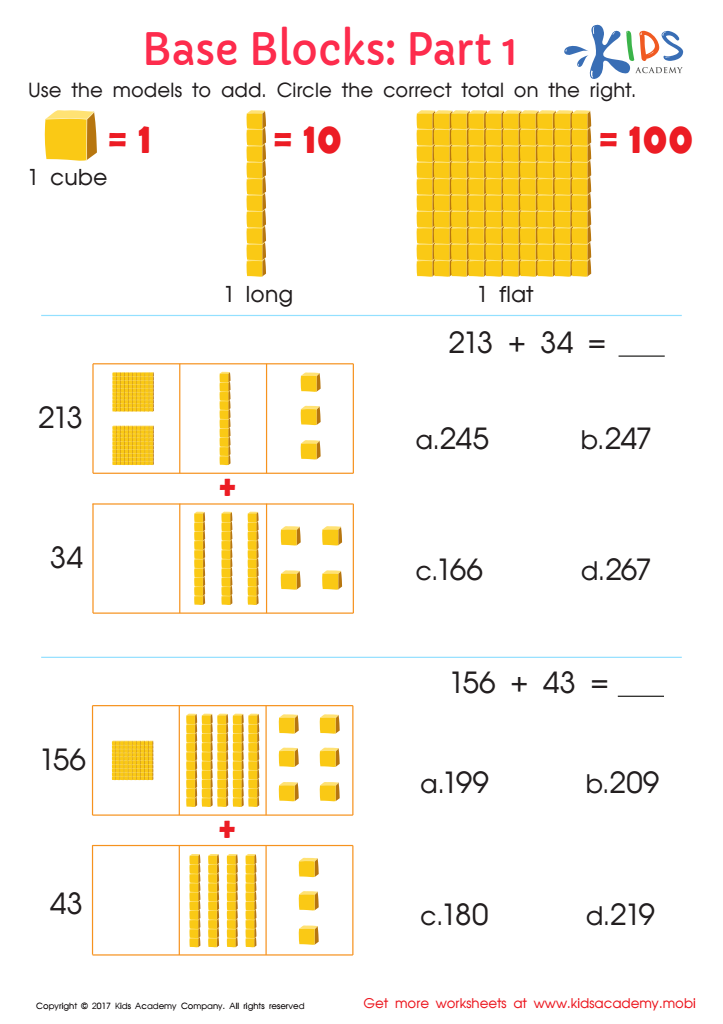

Base Ten Blocks Worksheet: Part 1
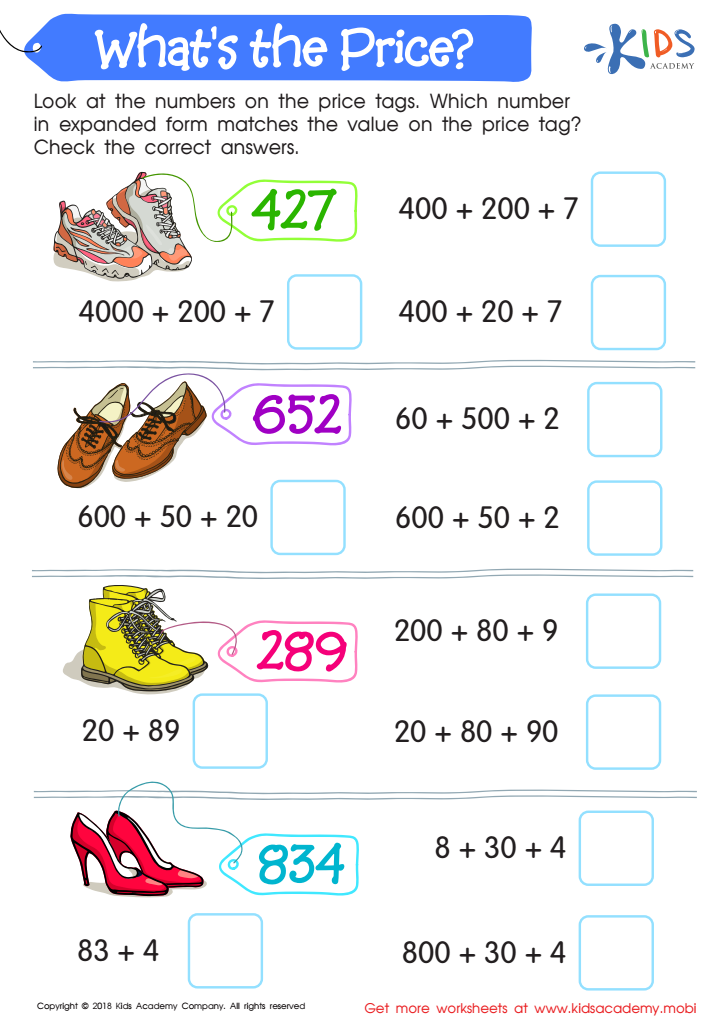

What's the Price? Worksheet
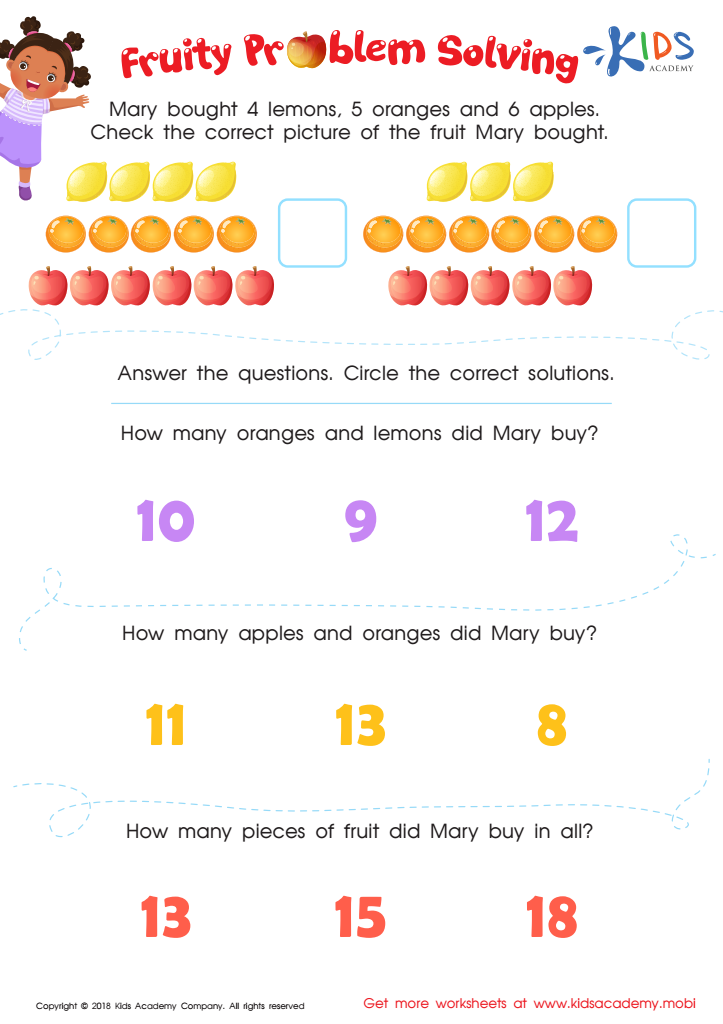

Fruity Problem Solving Worksheet
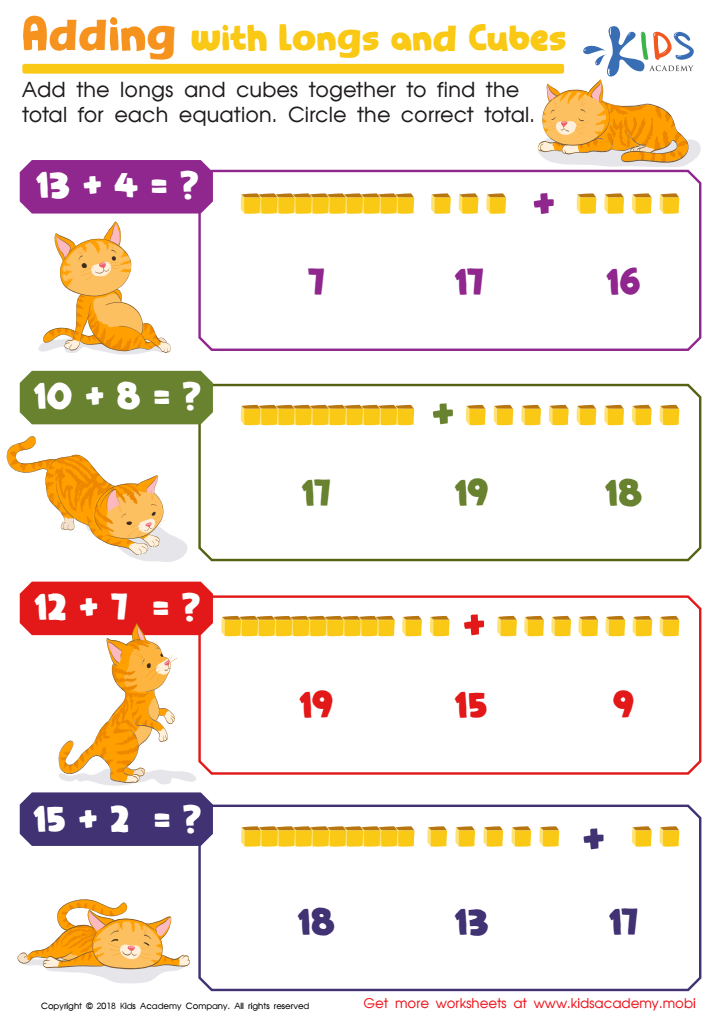

Adding With Longs and Cubes Worksheet
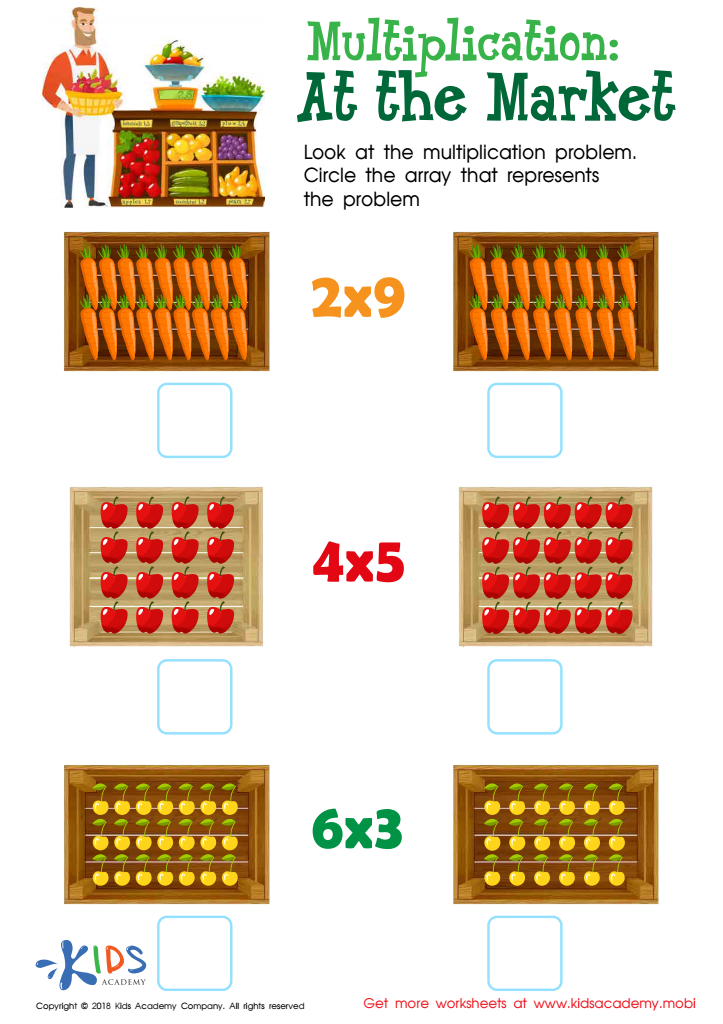

At the Market Worksheet
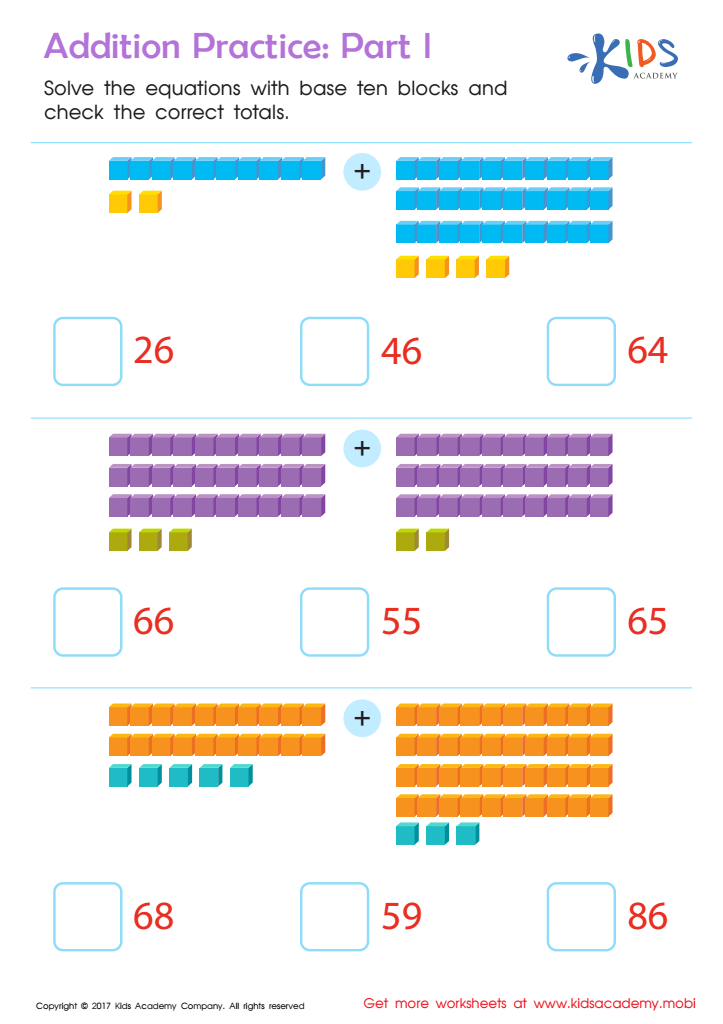

Addition Practice Sheet: Part 1
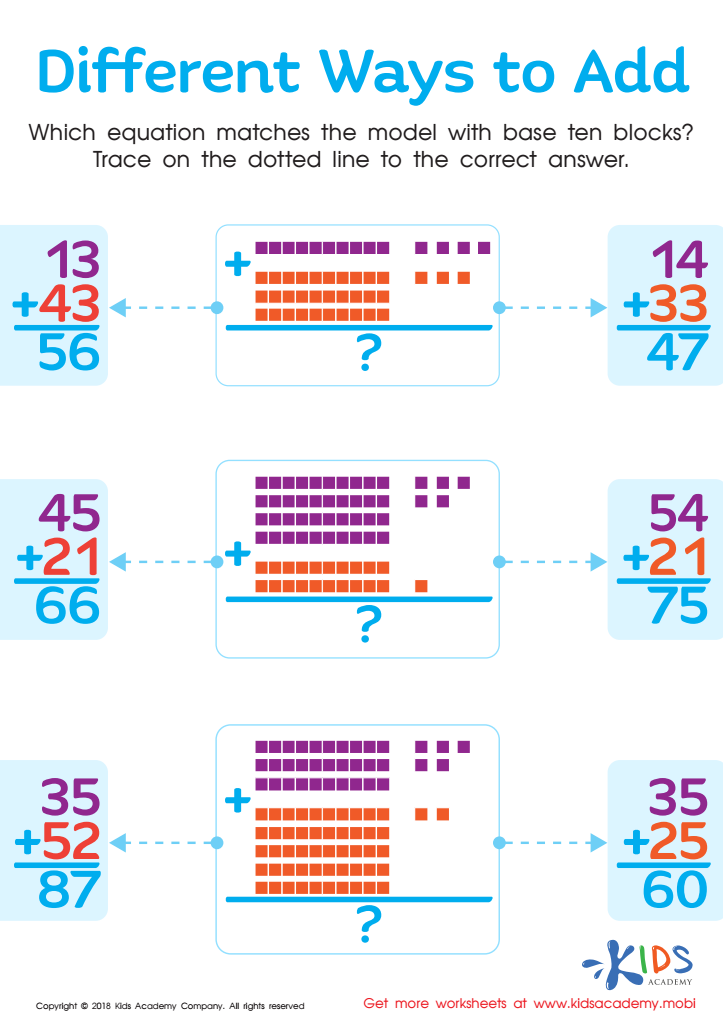

Different Ways to Add Worksheet
Building strong addition skills in young children ages 4-8 lays a crucial foundation for their mathematical development and overall cognitive growth. First, addition is one of the basic building blocks of math, essential for understanding later, more complex concepts like subtraction, multiplication, and division. Mastery in addition enables smoother transitions and boosts #' confidence when tackling these higher-level problems.
Moreover, engaging with normal numbers through addition also nurtures a child's numerical sense – the ability to understand and work with numbers flexibly and intuitively. This skill is indispensable not only academically but in practical, everyday situations like handling money or measuring ingredients while cooking.
Additionally, the process of learning addition facilitates the development of critical thinking and problem-solving abilities. Children learn to recognize patterns, make predictions, and devise strategies, fostering an analytical mindset that transcends mathematics and is applicable in many other areas, such as literacy and science.
Finally, consistent practice with addition promotes concentration and persistence, values integral to both academic success and personal development. Parents and teachers who invest in teaching these skills can help create a solid educational grounding. This makes future mathematical learning less daunting and more enjoyable for children, igniting a lifelong interest in learning and exploration.

 Assign to My Students
Assign to My Students
















